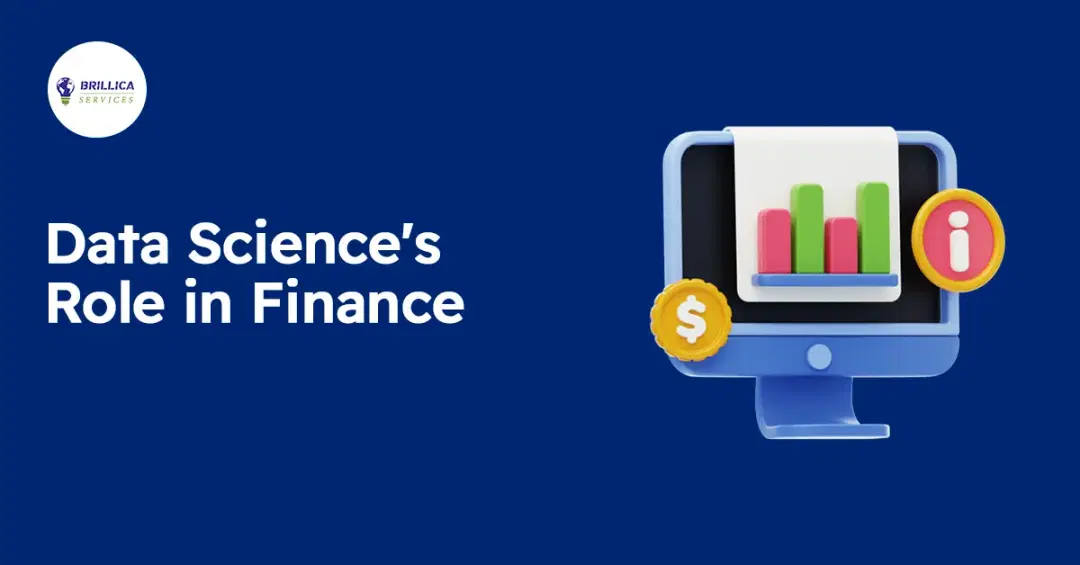Are you fascinated by the world of data and want to turn your passion into a rewarding career?
Look no further than becoming a Data Scientist in India! With the exponential growth of data-driven technologies and the increasing demand for data professionals, the field of data science offers unlimited opportunities for those with the right skills and mindset.
In this article, we will guide you on the path to becoming a Data Scientist in India. We will explore the necessary skills, educational background, and practical knowledge you need to excel in this field.
Whether you are a fresh graduate or a working professional looking for a career change, this article will provide you with valuable insights and actionable steps to carve your way into the world of data science.
From learning essential programming languages like Python and R, to mastering statistical analysis and machine learning algorithms, we will cover all the essential areas you need to focus on to become a successful Data Scientist. So, embrace the power of data and get ready to embark on an exciting journey towards a highly sought-after profession.
Why data science is in high demand in India
In recent years, the demand for data science professionals in India has skyrocketed, transforming it into one of the most sought-after career paths.
Several key factors :
- Exponential Growth of Data: The digital era has led to an unprecedented increase in data generation. Businesses and organizations now collect vast amounts of data from various sources, including social media, e-commerce transactions, IoT devices, and customer interactions. This surge in data volume necessitates skilled data scientists who can analyze and interpret complex datasets to derive actionable insights.
- Data-Driven Decision Making: Companies across sectors are increasingly adopting data-driven strategies to enhance operational efficiency, improve customer experiences, and drive innovation. Data science enables organizations to analyze trends, forecast future outcomes, and make informed decisions. This shift towards data-centric approaches has heightened the demand for professionals capable of translating data into strategic business insights.
- Diverse Applications: Data science is not confined to one industry; its applications span various sectors, including finance, healthcare, retail, manufacturing, and marketing. This versatility means that data scientists are needed in multiple domains, creating a robust job market. For example, in finance, data science is used for risk assessment and fraud detection, while in healthcare, it aids in patient care optimization and drug discovery.
- Rise of Artificial Intelligence and Machine Learning: As organizations integrate AI and machine learning technologies, the need for data scientists who can develop and refine algorithms has surged. These technologies rely heavily on data analysis and interpretation, making data science expertise essential for successful implementation and ongoing improvements.
- Government Initiatives and Startups: The Indian government has recognized the importance of data science in economic growth and has initiated various programs to support digital transformation. Additionally, the burgeoning startup ecosystem in India is creating numerous opportunities for data scientists as new ventures seek to leverage data for competitive advantage.
- Skill Gap in the Market: Despite the high demand for data scientists, there remains a significant skill gap in the job market. Many aspiring professionals lack the necessary expertise in programming, statistical analysis, and machine learning. This gap presents a golden opportunity for those who are willing to upskill and enter the data science field. As data continues to shape the future of business and technology, the demand for skilled data science professionals in India is set to grow even further, making it a promising career path for aspiring individuals.
- Skills required to become a data scientist: Becoming a successful data scientist requires a diverse set of skills that combine technical expertise, analytical thinking, and domain knowledge. Here’s a breakdown of the essential skills you should develop:
- Statistical Analysis: A strong foundation in statistics is crucial for interpreting data and drawing meaningful conclusions. Understanding concepts like probability distributions, hypothesis testing, and statistical significance will help you analyze data effectively.
- Programming Skills: Proficiency in programming languages such as Python and R is vital for data manipulation, analysis, and visualization. These languages offer robust libraries and frameworks that simplify data science tasks.
- Data Manipulation and Analysis: Familiarity with data manipulation tools like Pandas (for Python) or dplyr (for R) is essential for cleaning and preparing data for analysis. You should also be comfortable working with SQL to extract and manage data from databases.
- Machine Learning: Knowledge of machine learning algorithms and techniques is fundamental for building predictive models. You should be familiar with concepts such as supervised and unsupervised learning, classification, regression, clustering, and neural networks.
- Data Visualization: Being able to present data insights in a clear and compelling manner is crucial. Skills in data visualization tools such as Matplotlib, Seaborn, Tableau, or Power BI will help you create informative charts and dashboards.
- Big Data Technologies: Familiarity with big data frameworks like Hadoop and Spark can be advantageous, especially when working with large datasets. Understanding how to process and analyze data in distributed environments is a valuable skill.
- Domain Knowledge: Having a solid understanding of the industry you work in is important for applying data science effectively. Knowledge of specific business processes, challenges, and metrics will allow you to tailor your analyses to meet organizational needs.
- Critical Thinking: Strong analytical and problem-solving skills are essential for interpreting data and deriving actionable insights. You should be able to approach complex problems methodically and think critically about the results.
- Communication Skills: The ability to communicate your findings clearly to both technical and non-technical stakeholders is crucial. Data scientists must be able to explain complex concepts in simple terms and tell a compelling story with data.
- Collaboration and Teamwork: Data science often involves working with cross-functional teams, including data engineers, analysts, and business stakeholders. Being a good team player and collaborating effectively will enhance your contributions to projects.
By cultivating these skills, you’ll be well-equipped to embark on a successful career in data science, enabling you to tackle real-world problems and drive data-informed decision-making in organizations.
Education and certification options for aspiring data scientists
Pursuing a career in data science typically requires a solid educational foundation combined with relevant certifications to enhance your qualifications.
Here’s a look at the various education pathways and certification options available for aspiring data scientists:
1. Bachelor’s Degree
While it’s possible to enter the field with a non-technical degree, most data scientists have at least a bachelor’s degree in a relevant field.
Consider the following options:
- Computer Science: Offers a comprehensive understanding of programming, algorithms, and data structures.
- Statistics or Mathematics: Provides a strong foundation in statistical analysis and data interpretation.
- Data Science or Analytics: Many universities now offer specialized degrees in data science that cover essential skills directly relevant to the field.
- Engineering: Degrees in engineering disciplines, such as electrical or industrial engineering, often include relevant coursework in statistics and programming.
2. Master’s Degree
For those looking to deepen their knowledge and enhance their job prospects, pursuing a master’s degree can be beneficial. Options include:
- Master of Science in Data Science: Focuses on advanced data analysis, machine learning, and statistical techniques.
- Master of Business Administration (MBA) with a focus on Analytics: Combines business acumen with data-driven decision-making skills.
- Master’s in Statistics or Applied Mathematics: Emphasizes quantitative skills essential for data analysis.
3. Online Courses and Bootcamps
Many individuals opt for online courses and bootcamps to gain practical skills quickly:
- Online Platforms: Websites like Brillica Services, Coursera, Udacity and DataCamp offer courses in data science, machine learning, and programming languages like Python and R.
- Bootcamps: Intensive bootcamp programs, such as General Assembly or Springboard, provide hands-on training in data science in a short time frame, typically ranging from a few weeks to several months.
4. Certifications
Professional certifications can enhance your resume and demonstrate your expertise to potential employers. Some notable certifications include:
- Microsoft Certified: Azure Data Scientist Associate
- IBM Data Science Professional Certificate
- Cloudera Certified Associate (CCA) Data Analyst
5. Workshops and Seminars
Attending workshops, seminars, and conferences can provide valuable learning opportunities and networking chances. Many organizations host events that focus on the latest trends and technologies in data science.
Steps to become a data scientist in India
Embarking on a career as a data scientist involves several key steps, each building on the previous one to equip you with the necessary skills and experience.
Here’s a structured approach to becoming a data scientist in India:
1. Know What a Data Scientist Does
Before delving into the technical details, it's essential to grasp the role of a data scientist. A data scientist analyzes complex data sets to derive insights, build predictive models, and support decision-making processes within organizations. Familiarize yourself with the responsibilities, required skills, and common tools used in the field.
2. Build a Strong Educational Foundation
Most data scientists have a background in fields related to data. Here’s how to establish your foundation:
- Pursue Relevant Degrees: Obtain a bachelor’s degree in a field such as Computer Science, Statistics, Mathematics, Engineering, or Data Science. Consider a master’s degree to deepen your expertise and improve your employability.
- Focus on Key Subjects: Make sure to cover subjects such as statistics, linear algebra, machine learning, and programming during your academic journey.
3. Learn Essential Technical Skills
Data science requires a robust set of technical skills Here are several important areas to concentrate on:
- Programming Languages: Become proficient in languages like Python and R, which are widely used in data analysis and machine learning.
- Statistics and Mathematics: Gain a solid understanding of statistical methods and mathematical concepts relevant to data analysis.
- Data Manipulation and Analysis: Learn how to work with data using libraries and tools like Pandas, NumPy, and SQL.
- Machine Learning: Familiarize yourself with machine learning algorithms and frameworks such as Scikit-Learn and TensorFlow.
- Data Visualization: Master tools like Matplotlib, Seaborn, and Tableau to effectively communicate insights through visual representations.
4. Gain Practical Experience
Hands-on experience is crucial for aspiring data scientists. Here’s how to gain practical skills:
- Internships: Seek internships or entry-level positions that allow you to work on real data projects. This experience is invaluable for applying theoretical knowledge in a practical setting.
- Personal Projects: Engage in personal projects that capture your interest. Use publicly available datasets to practice your skills, build portfolios, and showcase your abilities to potential employers.
- Participate in Competitions: Join platforms like Kaggle or DataHack, where you can participate in data science competitions, learn from others, and build your reputation in the community.
5. Network with Professionals
Networking can lead to job opportunities and offer valuable insights into the industry. Here are some ways to connect:
- Join Data Science Communities: Engage with online forums, social media groups, and local meetups to connect with fellow aspiring data scientists and industry professionals.
- Attend Workshops and Conferences: Participate in data science workshops, webinars, and conferences to learn about the latest trends and technologies while expanding your network.
6. Pursue Certifications
Earning relevant certifications is a crucial step in building a successful career in data science or artificial intelligence.
Certifications not only validate your skills but also showcase your commitment and dedication to mastering the field. They serve as a strong testament to your knowledge and expertise, making you stand out in a competitive job market.
These certifications are designed to provide in-depth training on key concepts, tools, and techniques used in the industry.
Whether it's mastering machine learning, deep learning, data visualization, or programming languages like Python and R, certifications allow you to gain specialized knowledge that is highly valued by employers.
Furthermore, certifications from reputed organizations and institutes enhance your professional credibility and can significantly increase your chances of securing lucrative job opportunities.
They reflect your readiness to take on complex projects and demonstrate your ability to apply theoretical knowledge to solve real-world problems.
By obtaining certifications, you also stay updated with the latest trends and advancements in the field, ensuring that your skills remain relevant.
Pursuing this additional qualification not only strengthens your resume but also opens doors to new career opportunities, helping you achieve long-term success in the field of data science or artificial intelligence.
7. Create a Strong Portfolio
Develop a portfolio that showcases your projects, skills, and accomplishments. Include detailed descriptions of the projects you’ve worked on, the methodologies you employed, and the outcomes achieved. Having a robust portfolio can greatly improve your job applications and interview chances.
8. Apply for Data Science Positions
Once you feel confident in your skills and have a portfolio to showcase, begin applying for data science roles. Tailor your resume and cover letter to highlight your relevant skills, experiences, and projects. Consider entry-level positions or internships to start building your career in data science.
9. Continue Learning and Evolving
The data science field is constantly changing, with new tools, techniques, and methodologies being developed all the time. Stay updated by taking advanced courses, attending workshops, and following industry news. Continuous learning will help you stay relevant and excel in your career as a data scientist.
By following these steps, you can set yourself on a successful path to becoming a skilled data scientist in India, ready to tackle the challenges and opportunities this exciting field offers.
Job opportunities and salary prospects for data scientists in India
The field of data science has witnessed exponential growth in India, resulting in a surge in job opportunities and attractive salary prospects. Organizations across various sectors are increasingly recognizing the value of data-driven decision-making, which has led to a heightened demand for skilled data scientists.
Here’s a closer look at the job landscape and earning potential for data scientists in India.
1. Diverse Job Opportunities
Data scientists are in high demand across numerous industries, reflecting the versatility of their skill sets. Key sectors hiring data scientists include:
- Information Technology (IT): Tech companies leverage data for software development, product enhancement, and user experience optimization.
- Finance and Banking: Financial institutions employ data scientists to analyze market trends, assess risks, and detect fraudulent activities.
- Healthcare: Data scientists contribute to medical research, patient data analysis, and the development of predictive models for patient outcomes.
- Retail and E-commerce: Retailers utilize data analytics for inventory management, customer behavior analysis, and personalized marketing strategies.
- Telecommunications: Telecom companies analyze user data to improve network services and customer retention strategies.
- Manufacturing: Data scientists optimize production processes, supply chain management, and quality control through data analysis.
2. Growing Demand for Data Science Roles
With the increasing reliance on data analytics, various roles have emerged within the data science domain. Common job titles include:
- Data Scientist
- Data Analyst
- Machine Learning Engineer
- Business Intelligence Analyst
- Data Engineer
- Statistician
3. Salary Prospects
The salary prospects for data scientists in India are impressive, often reflecting the candidate's level of experience, skill set, and the complexity of the job. Here’s a breakdown of salary expectations based on data scientist experience:
- Entry-Level (0-2 years): Data scientists at the entry level can expect salaries ranging from Rs 4 to 8 lakhs per annum. Fresh graduates with relevant internships or projects may start at the higher end of this range.
- Mid-Level (2-5 years): With a few years of experience, data scientists can earn between Rs 8 to 15 lakhs per annum. Professionals who have developed specialized skills in machine learning or big data technologies can command higher salaries.
- Senior-Level (5+ years): Senior data scientists or team leads can earn salaries ranging from Rs 15 to 30 lakhs or more annually. Those in managerial positions or with extensive experience in high-demand industries may see even higher compensation packages.
4. Factors Influencing Salaries
Several factors influence salary levels in the data science field, including:
- Skills and Specializations: Proficiency in programming languages (like Python, R), machine learning frameworks, and data visualization tools can significantly enhance earning potential.
- Industry: Salaries can vary across industries, with sectors like finance and technology generally offering higher compensation compared to others.
- Location: Major cities such as Bangalore, Mumbai, and Delhi typically offer higher salaries due to the concentration of tech companies and startups.
- Company Size: Larger corporations or well-funded startups often have more resources to offer competitive salaries compared to smaller firms.
5. Future Trends
The demand for data scientists is expected to grow further in the coming years as organizations increasingly harness the power of data for strategic decision-making. As industries evolve and data continues to play a pivotal role, the prospects for data scientists remain bright, promising not only job stability but also significant career growth opportunities.
Networking and building a professional profile in the data science field
In the rapidly evolving field of data science, networking and establishing a strong professional profile are crucial for career advancement and opportunities. As the demand for skilled data scientists grows, building connections within the industry can help you stay informed about trends, job openings, and best practices. Here’s how to effectively network and enhance your professional presence in the data science community.
1. Leverage Online Platforms
LinkedIn is one of the most powerful tools for networking in the professional world. Here are a few strategies to enhance your LinkedIn profile:
- Create a Strong Profile: Ensure your LinkedIn profile is complete, showcasing your skills, experience, and projects. Use a professional photo and write a compelling summary highlighting your passion for data science.
- Connect with Professionals: Reach out to fellow data scientists, industry experts, and alumni from your educational background. Tailor your connection requests to specify your reasons for wanting to connect.
- Engage with Content: Share articles, write posts, and comment on discussions relevant to data science. This can help establish you as a knowledgeable participant in the field.
- GitHub For data scientists, GitHub is an essential platform to showcase your coding skills and projects.
Use it to:
- Share Your Projects: Upload your data science projects, including code, analyses, and documentation. This acts as a portfolio to demonstrate your abilities to potential employers.
- Contribute to Open Source: Collaborating on open-source projects can enhance your skills, build your network, and increase your visibility in the community.
2. Join Professional Associations and Groups
Participating in professional organizations can provide valuable networking opportunities and resources. Consider joining:
- Data Science Associations: Organizations such as the Data Science Society, Association for Computing Machinery (ACM), and IEEE Computational Intelligence Society offer networking events, conferences, and online forums.
- Local Meetups and Workshops: Attend local meetups, workshops, or hackathons focused on data science. These events allow you to connect with like-minded individuals and industry professionals.
3. Attend Conferences and Seminars
Industry conferences provide a platform for learning, networking, and showcasing your expertise. Participate in events such as:
- Data Science Conferences: Attend major conferences like Strata Data Conference, PyData, or the Data Science Conference to gain insights into industry trends and network with experts.
- Webinars and Online Events: Many organizations host webinars that cover various data science topics. Participate actively and engage with speakers and attendees to expand your network.

4. Build Your Personal Brand
Establishing a personal brand can enhance your visibility and credibility in the data science field. Consider the following strategies:
- Create a Blog or Website: Share your insights, experiences, and tutorials related to data science. This can position you as a thought leader and attract connections in the industry.
- Engage on Social Media: Use platforms like Twitter and Reddit to share content, participate in discussions, and connect with other data scientists. Connect with industry leaders and interact with their content.
5. Seek Mentorship Opportunities
Finding a mentor in the data science field can provide guidance, support, and valuable industry insights. Look for:
- Mentorship Programs: Many professional organizations offer mentorship programs connecting experienced professionals with newcomers.
- Networking with Peers: Connect with fellow data science enthusiasts and exchange knowledge, tips, and resources to support each other's growth.
6. Stay Updated and Continuously Learn
The field of data science is ever-evolving, and staying updated with the latest trends and technologies is vital. Engage in:
- Online Courses and Certifications: Pursue courses to enhance your skills and add credibility to your profile. Websites like Brillica Services, Coursera, edX, and Udacity provide specialized data science courses.
- Reading Industry Publications: Follow blogs, research papers, and industry reports to keep abreast of emerging trends and technologies in data science.
Challenges and roadblocks in becoming a data scientist in India
While the field of data science offers numerous opportunities, aspiring data scientists in India often encounter various challenges and roadblocks on their journey.
Understanding these obstacles can help you navigate them effectively and better prepare for a successful career in this competitive domain.
Here are some of the most common challenges faced by individuals pursuing a career in data science:
1. Skill Gap
The rapid evolution of data science tools and techniques creates a significant skill gap for many newcomers. Aspiring data scientists may struggle to keep up with:
- Emerging Technologies: Data science encompasses a broad range of technologies, including machine learning, big data analytics, and artificial intelligence. Keeping up with the latest developments demands ongoing learning and flexibility.
- Practical Experience: Many candidates possess theoretical knowledge but lack practical experience. Employers often seek candidates who can demonstrate hands-on skills in real-world projects, which can be challenging for those just starting out.
2. Intense Competition
The increasing popularity of data science has led to a surge in the number of professionals entering the field. As a result, competition for job opportunities can be fierce, with challenges including:
- High Number of Applicants: Many organizations receive numerous applications for data science roles, making it difficult for candidates to stand out. A robust portfolio, relevant skills, and networking become crucial to gaining a competitive edge.
- Experience Requirements: Many job postings require several years of experience, creating a barrier for fresh graduates or those transitioning from other fields. This can discourage talented individuals from pursuing data science careers.
3. Lack of Quality Education and Training
While there are numerous data science courses available, not all provide high-quality education or practical training. Some issues include:
- Mismatched Curriculum: Many courses do not align with industry needs, leaving students unprepared for real-world challenges. It's essential to choose programs that offer relevant, hands-on training and are taught by industry experts.
- Inadequate Guidance: Aspiring data scientists may find it difficult to navigate the multitude of learning resources available, leading to confusion and wasted time. Access to mentorship and guidance can significantly enhance the learning experience.
4. Data Privacy and Ethical Considerations
As data science often involves working with sensitive information, understanding data privacy and ethics is crucial. Challenges include:
- Compliance with Regulations: Data scientists must be aware of legal and ethical standards surrounding data usage. Failing to comply with regulations like GDPR can lead to significant repercussions for individuals and organizations.
- Responsible Data Usage: Ethical considerations in data collection, analysis, and interpretation are essential. Data scientists must ensure that their work does not perpetuate biases or harm individuals or communities.
5. Dynamic Job Requirements
The rapidly changing landscape of data science can create uncertainty regarding job roles and expectations. Some difficulties include:
- Evolving Job Descriptions: As organizations adopt new technologies and methodologies, the requirements for data science roles may shift. Keeping up with these changes can be challenging for professionals.
- Need for Diverse Skill Sets: Data scientists often need to possess a mix of skills, including programming, statistical analysis, and domain knowledge. Building expertise in multiple areas can be demanding and time-consuming.
6. Imposter Syndrome
Many aspiring data scientists experience self-doubt and imposter syndrome, particularly when transitioning from different fields or backgrounds. This challenge can manifest in:
- Lack of Confidence: Feelings of inadequacy can prevent individuals from pursuing opportunities or sharing their work, hindering career growth.
- Fear of Failure: The pressure to succeed in a competitive field can lead to anxiety and reluctance to take risks or tackle new challenges.
Becoming a data scientist in India can be a rewarding yet challenging journey. By recognizing these obstacles—such as the skill gap, intense competition, lack of quality education, and ethical considerations—aspiring professionals can better prepare themselves to navigate the complexities of the field. With determination, continuous learning, and the right support, you can overcome these challenges and thrive in the dynamic world of data science.
Resources and online platforms for learning data science in India
YouTube Channels and Blogs
- StatQuest with Josh Starmer: This YouTube channel breaks down complex statistical concepts and data science topics in an easy-to-understand manner, making it perfect for beginners.
- KDNuggets: A leading site for data science resources, KDNuggets offers blogs, tutorials, and articles on various data science topics. Following their blog can keep you updated with the latest trends in the field.
- Towards Data Science: This Medium publication features articles and tutorials from various authors, covering a wide range of data science topics, including machine learning, data visualization, and programming.
Books and eBooks
- "Python for Data Analysis" by Wes McKinney: A comprehensive guide to data analysis using Python, this book is essential for anyone looking to leverage Python for data science tasks.
- "Hands-On Machine Learning with Scikit-Learn, Keras, and TensorFlow" by Aurélien Géron: This book provides practical guidance on implementing machine learning algorithms using popular Python libraries.
- "Data Science from Scratch" by Joel Grus: Ideal for beginners, this book introduces fundamental concepts of data science and programming in Python, enabling readers to build their data science skills from the ground up.
Community and Networking Platforms
- LinkedIn: Joining data science groups on LinkedIn can help you connect with professionals in the field, share insights, and stay updated on industry trends and job opportunities.
- Meetup: Look for data science meetups in your area to network with like-minded individuals and participate in discussions, workshops, and events.
- GitHub: Engaging with the data science community on GitHub allows you to explore repositories, collaborate on projects, and showcase your own work, which is valuable for building a professional portfolio.
Conclusion: The future of data science in India
The future of data science in India is bright, driven by technological advancements and the increasing reliance on data across various industries. As businesses recognize the value of data-driven decision-making, the demand for skilled data professionals is set to grow significantly.
With sectors like e-commerce, finance, healthcare, and technology expanding, data science is becoming essential for innovation and strategic planning. The government's initiatives, such as Digital India, further support the growth of this field.
As new trends and technologies like artificial intelligence and big data analytics emerge, continuous learning will be crucial for professionals. Overall, aspiring data scientists can look forward to abundant opportunities and a rewarding career in this dynamic landscape.






